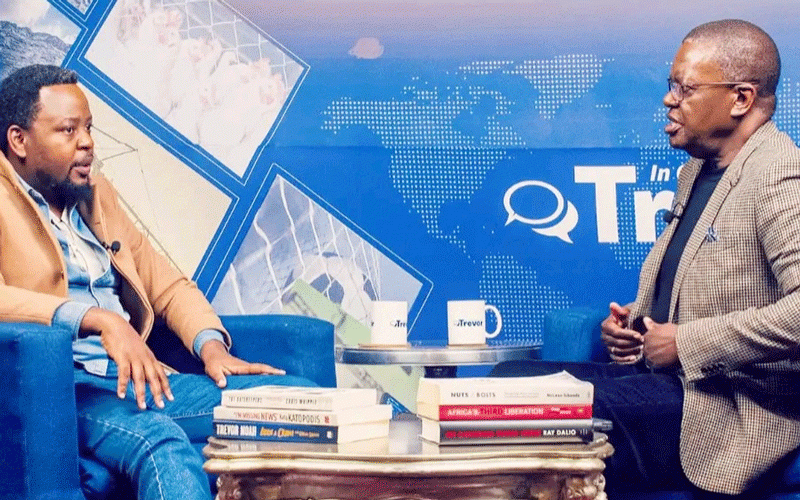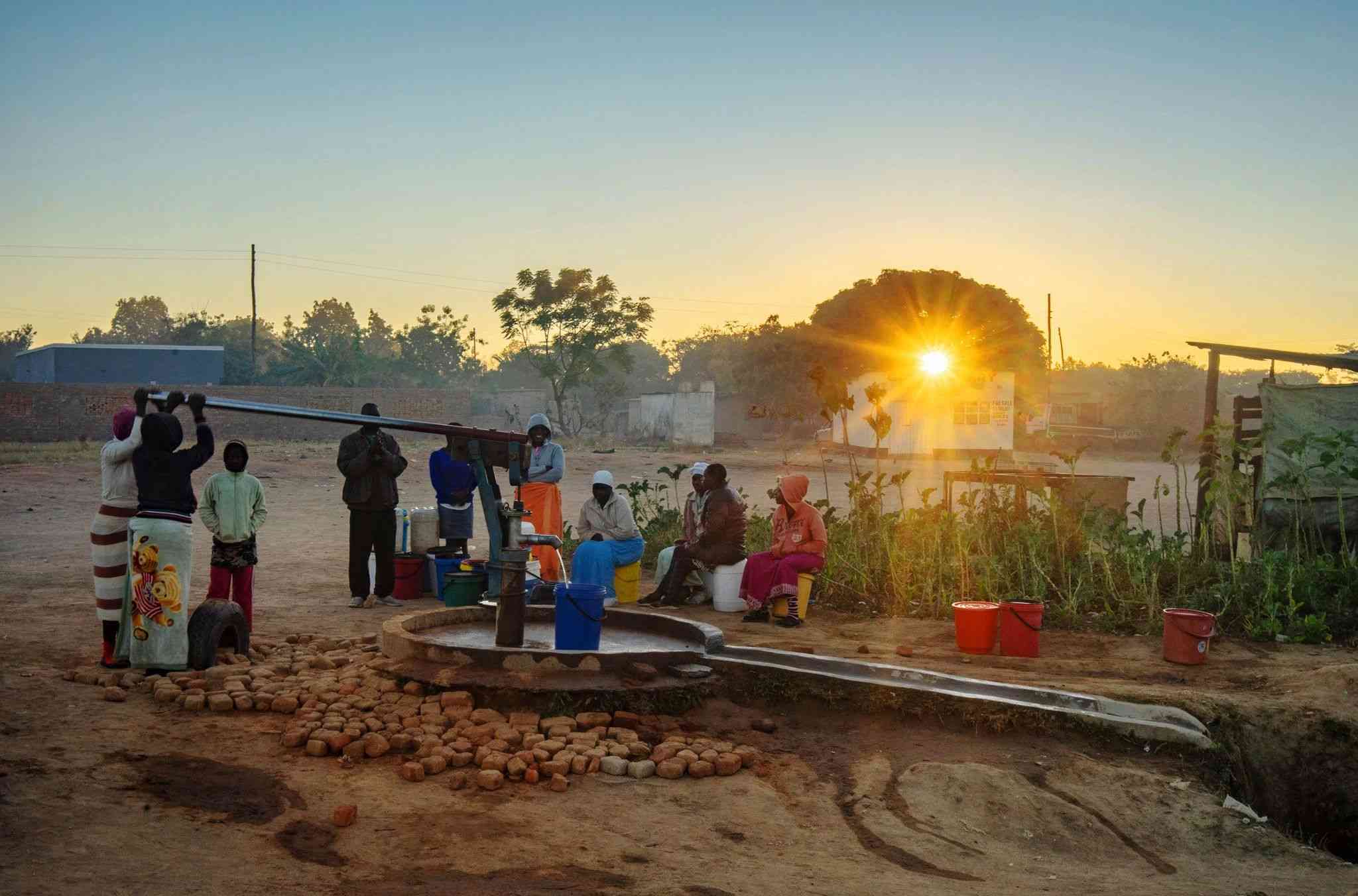
Award-winning movie director Pious Nyenyewa says winning a Disney award changed the trajectory of his life.
Nyenyewa (PN), who is a professional animator at Alula Animation Studios, spoke about his life-changing experience on the platform In Conversation with Trevor hosted by Alpha Media Holdings chairman Trevor Ncube (TN).
Below are excerpts from the interview.
TN: Pious Nyenyewa I am so excited. I think I'm more excited than you to be having this conversation with you, welcome.
PN: Well, thank you for having me on this amazing show.
TN: You have just won an award for (Kizazi Moto). What is Kizazi Moto? Tell us about Kizazi Moto.
PN: We are still trying to shake off the whole out of body experience yeah, but Kizazi Moto is essentially an anthology series that was done by Disney.
It’s a combination of 10 films from across 10 different countries across Africa with 10 different directors and ours is episode number six.
So, basically, it is coming of a themed anthology, which is basically focusing on anything that is aspirational from culture and how we see ourselves.
Our specific episode focuses on the Great Zimbabwe. It is quite an interesting episode where Muku is the main character.
TN: Muku is your brainchild?
PN: Yes
TN: Talk to us about how you arrived at Muku.
PN: Muku is the main character in the film and back in the day I remember visiting the Great Zimbabwe and dare I say it on this amazing show I was a little bit disappointed; I remember thinking well we have heard stories about these sacred places basically taking care of themselves like there are certain things you are not supposed to litter, you are not supposed to use foul language, you would vanish and all that stuff and I was like, well, ‘why is this happening?’
Where are the people who have littered, where are they? Why now? Why aren't they being punished by this place?
So basically this was the conception of the film or at least the plot of it and I was like hey, ‘Wouldn’t it be interesting if we explore where people go in that time and the story just started to tell itself’.
You know through experience you are looking at certain people and then you are just like, wow, like what if we explore a place where maybe it takes you to a place where the Great Zimbabwe, still in its prime, and you are supposed to learn if you don't learn you know the ethics of being Zimbabwe and, or being Shona and everything that who we are, you know, that's those are the people that vanish and never come back cause the ones that actually do come back they turn to be, you know,...so the part that really interested me was, those who do come back seem to have some kind of enlightenment at least in Shona cultures and I was like, well, they definitely learned something so that's the premise of the story.
TN: Wow
PN: So imagine in my movie anybody that litters vanishes and when they come back they have been taught not to absolutely. It goes with the eco-friendly theme that we are looking at today saving the world.
TN: I wanted to take you back. You received an email during Covid, talk to us about that email?
PN: I think there's nothing much I can say about Covid because I know we all know it was a very depressing time for a lot of people.
Well,for me I'm an introvert, so it wasn't really difficult.
I was already used to living like that, but for the animation industry it was quite an interesting time because business boomed.
A lot of people could not film, couldn't take out cameras, couldn't visit locations.
So everybody was flocking to animation. I received an email from one Tendai. She’s amazing and it was basically asking us to submit three films.
I remember at that time I had more than three, but I had one that I was quite confident in submitting.
I submitted that one, and they are like, well if you submit one you know you just know that there are thousands of people that are submitting films and they're submitting many.
I was like, well if I don't get it that's okay, but fortunately I did get it and then we were told that this is Disney and I remember just calling everyone in the studio and just going on an amazing call.
I was like, guys we just got into Disney and it was one of the happiest moments, but then you go through intense development; I mean this is big. This is Disney calling.
We always talk about that where you think certain opportunities are not for you and the things that you are doing you feel like they're not making an impact, but people are watching.
So in that moment, it's a realisation that, you know, people are watching and this could significantly change my life.
You have the excitement and then you have the panic attack like you know what if I fail you know cause I don't know any creative, who had been in that position before.
So it's like what if I fail?
So you have this call of duty that you now have.
That's crossing over between excitement and fear.
We started to brush up on the skills that we already had since now you're like being called by the gods of animation to join them and you're thinking, am I going to perform as good as they expect; am I worthy?
But then you realise there are all good people, the nicest people in the world. So it was quite an amazing moment.
TN: Am I correct that you submitted one idea? There’s 65 of you and then it's reduced to 25. Talk to me about the waiting period before it gets to 16 of you. What was that like?
PN: I will tell you what happened. I pitched, I submitted a synopsis and the synopsis was accepted and then you get to meet the executives from Disney on a Zoom call.
I remember trying to set up something like this, to have the perfect lighting and I recorded the meeting without them knowing because I thought this is as far as I can go right there.
It went beyond that so it was quite amazing just hearing that look ‘you got into the next point,’ this is the meeting, this is the satisfaction that I need to know that I'm on the right track so I'm not really expecting to get to the next round.
When I found out that I got to the next round, my stomach starts turning cause now I'm like, okay, ‘can I make it to the next round and they have a tendency of going quiet not because they are quiet but because they are really going through everything’.
So by the time we get to 25 they are now asking the real questions, ‘which is like you made it, but are you a writer?
I wasn't a writer at all so I reached out to a friend of mine, who ended up being my co-director.
And the biggest intense waiting period is to hear if you made it to the last 10; so you made 16 final and you wait again.
So when you get to six the last 16 basically get into development so your story is okay, but let's flesh it out a little, let's see what the characters look like, draw some of these things write the story, let's see what the world looks; like explore ideas and then you do an actual Hollywood pitch and this is the out of body experience right now.
I mean this thing is stretching and because this is over a year, so by the time you get there, you have settled into the feeling that this is happening right.
You are still trying to be on your best behaviour but you settle into it.
Basically you are not really too scared as much because you are meeting with the producers on a weekly basis, almost on a daily basis sometimes.
So I had settled into the feeling that this is becoming normal. This was becoming normal.
TN: Before you got the email, what were you doing?
PN: Advertising which we are still doing. I do have a studio called Alula animation that I founded in 2017 and we are doing it because we wanted to make movies, but of course movies are expensive.
They require a lot but we were like ,okay let's just do baby steps.
Let’s do advertising because I had done graphic designing.
I had worked in agencies before, so this was a space that I knew.
So we got together with a bunch of friends and we started a studio, but our approach was quite different because we didn't do your typical, you know, what we call like a spinning phone advert but we'll craft a story.
So someone would come to us and say we are trying to sell a certain package.
So we would literally sit down and develop a short film and I guess when people looked at them they would play in theatre, they were like short trailers of films and stuff and I think this is the reason why it was easy for the Disney producers and the guys in South Africa when they are looking for storytellers because we are already doing some form of story even though it was in the advertising space and we are quite successful.
TN: What does Alula stand for? How did you come up with Alula?
PN: It’s a beautiful word.
TN: How did you come up with it?
PN: I love short names. They are very easy to remember.
Look at Apple like you can just remember it. I remember just going through a whole bunch of names.
I was watching a tutorial and animation tutorial on how to animate Dragons by Jim Brown and so basically what you do is when you are learning how to animate you study anatomy.
They were explaining the trifold system of a wing and he mentioned this tiny little thing in a chicken wing right.
I was like I love it because the Alula allows bigger birds of prey to basically fly and control wind. It’s the technology beyond the flaps of the wing of an airplane that is fascinating; that's the Alula and I loved it so much.











